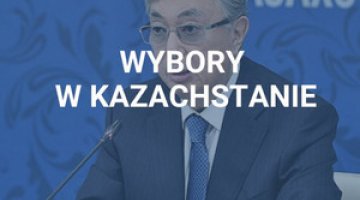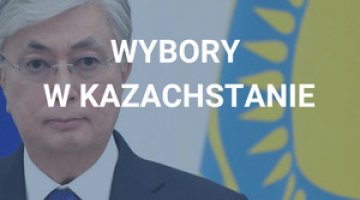Elections in Kazakhstan
On 15 January, early elections to the lower house of parliament in Kazakhstan were held. According to preliminary results (the final results will be announced by 22 January), on a turnout of around 75%, the ruling Nur Otan party won (with 80.74% of the vote); the moderate opposition Ak Zhol (with 7.46%) and the Communists (7.2%) should also enter parliament. In the opinion of the OSCE’s observers, the elections did not meet democratic standards; their criticisms concerned the prevention of openly opposition parties from running, the removal of candidates from electoral lists, the lack of equal opportunities in the election campaign, and to a limited extent, infringements during the elections themselves. As is usual, the observers from the CIS did not announce any violations. No spectacular or massive attempts to undermine the voting were made, either during the elections or immediately afterwards.
- Kazakhstan is a state which displays characteristics of ‘soft’ authoritarianism (especially against the background of the rest of the region): the opposition has limited room for manoeuvre, and the parliament plays a subordinate role to the executive authorities. The early elections were an opportunity to limit the opposition’s activity. Although two moderate opposition parties have (probably) entered parliament, the dominance of the Nur Otan party (which the president leads) means that the political system will not radically change.
- These elections appear to represent an important step towards preparing the succession to the presidency. Parliament remains an important element in regulating the balance of power within the ruling elite; the elections will also justify personnel changes and adjustments to the government’s internal and economic policies. Such changes can be expected over the coming weeks; of greatest importance are the future positions of Timur Kulibayev (the president’s influential son-in-law, who is considered a likely successor) and his colleagues. These have been shaken as a result of the public protests in Kazakhstan last December (Kulibayev has been removed from the management of Samruk-Kazyna, a strategic state holding company).
- The elections took place in the shadow of the greatest protests in the state’s independent history, last December in western Kazakhstan, when riot police killed 17 strikers. The riots damaged Kazakhstan’s international image; added to the tensions within the political elite (including the opposition in emigration) and strengthened them, and disrupted both the elections and the plan of succession (by striking indirectly at Kulibayev’s position). The protests also revealed the scale of social tensions in the country (which hitherto had not been readily apparent); meanwhile, parallel to the strike, Muslim radicals became active. Yet despite these social tensions, the national elections took place without any politically motivated protests; the only incident was a fire at a mosque in Astana, the largest in all Central Asia. The peaceful conduct of the elections suggests that the authorities have succeeded in temporarily easing the tension (although the underlying causes of those tensions remain unresolved), and the public at large does not seem ready to politicise the social problems.
- The campaign and the elections met with criticism from the OSCE and the Western media. And although this criticism will probably not impinge on the West’s real economic and political cooperation with Kazakhstan, it has definitely failed to meet the expectations of Astana, which is striving to create the country’s image.



